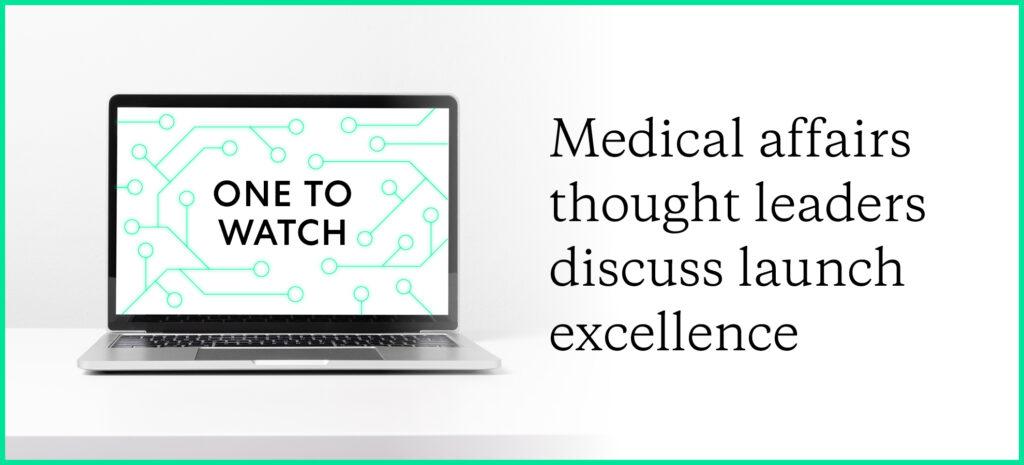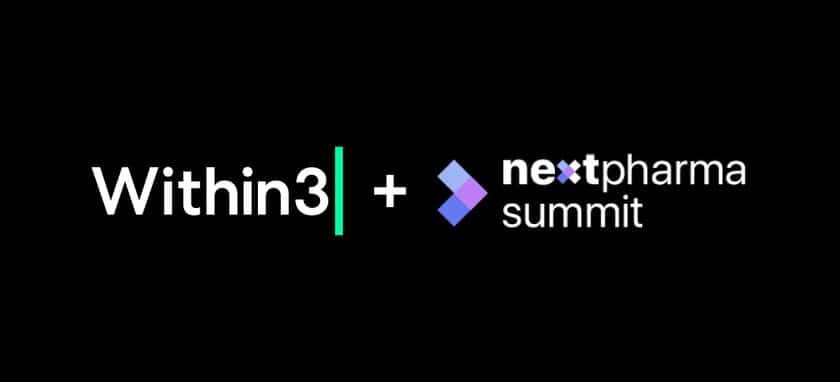A pharma speaker bureau is a program pharmaceutical companies use to engage and educate HCPs on their products’ benefits and appropriate use. These audiences may include physicians, nurses, and pharmacists, and speaker sessions can be conducted in person or online. Good speaker bureau management is a critical part of maintaining an effective program that adds value.
A speaker bureau in pharma typically consists of a group of trained speakers who are experts in a specific therapeutic area, disease, or condition associated with a drug or therapy. The ultimate goal of a pharmaceutical speaker bureau is to encourage HCPs to prescribe or recommend a company’s products to their patients. A presentation might include scientific data about the product’s safety and efficacy, additional clinical insights, and advice on using the product.
Pharma speaker bureaus are a critical part of a drug company’s marketing and educational strategies and at their most effective, provide opportunities for education, relationship building, career advancement, and scientific exchange.
More successful speaker training sessions happen on the Within3 platform
Speaker bureau programs are not without potential risks and pitfalls, and effective speaker bureau management and speaker bureau training are critical activities. They also require intense coordination across multiple priorities, including brand, regulatory and compliance, and training.
For these reasons, many pharma teams choose to use technology that supports effective speaker bureau management.
In this guide, we’ll discuss:
- What are the key elements of a successful speaker bureau?
- Why is speaker bureau training important?
- Tips for developing an effective speaker training program
- Compliance considerations for speaker bureau programs
- Speaker bureau management tools and technologies
- Speaker bureau program examples and case studies
- Conclusion
What are the key elements of a successful speaker bureau?
Like any business initiative, speaker bureaus get better results when they are closely monitored and constantly improved. To maintain a successful speaker bureau, pharma leaders should do the following:
- Define goals. Determine what you want the speaker bureau to accomplish. Is it brand awareness? Impact on the company’s bottom line? Establishing thought leadership in a particular disease community? With a clear idea of the program’s goals, it will be easier to measure success.
- Recruit and develop diverse, relevant speakers. Diversity in your speaker bureau can be a big advantage. Recruit speakers from different backgrounds with varying expertise. A diverse speaker bureau means you can provide value to various audiences.
- Offer quality training. In addition to having diverse and relevant experience, the speakers you recruit should have or obtain public speaking and presentation skills. Make ongoing education available to your speakers so they can deliver value to you and your audience.
- Promote your speaker bureau. Without a promotion plan, your speakers bureau program can’t thrive. How can you market the program to potential audiences? Consider the available channels, including social media, email, and targeted advertising. Test your potential channels and invest accordingly.
- Seek out feedback. Get input from your audiences and the speakers themselves. Use the information you gather to make better decisions and improve the program’s overall quality.
Focusing on these elements helps you run a better speaker bureau. You’ll also be able to justify the investment of additional time and resources into the program.
Why is speaker bureau training important?
At the heart of any successful speaker bureau program is good training. Not only will your program provide high-quality content to your audiences, but you will also have fewer concerns about potential compliance issues.
Furthermore, with a solid training program in place, HCPs and other experts looking for help on how to become a pharmaceutical speaker will gravitate towards your program. This could be the foundation of a mutually beneficial relationship.
Good training helps ensure speakers understand industry regulations so your team can avoid potential legal and reputational issues. Missteps around compliance and scientific accuracy can damage your speakers’ reputations and your company’s credibility.
Tips for developing an effective speaker training program
Given the importance of speaker bureau training, how can pharmaceutical companies ensure they are building a good training program? Keep in mind a few key areas as you design your training regimen:
- Know your audience. What are your audience’s needs and preferences? Are you creating programs for HCPs, KOLs, and KEEs, or sales and marketing professionals? Understanding what your audience wants to learn can help you tailor your training from content to format.
- Keep compliance top-of-mind. Ensure that your speaker training emphasizes compliance and provides practical guidance on following industry regulations and guidelines.
- Maintain current scientific data. Your speakers can only provide high-quality programming if they can access high-quality, updated data. Make sure your speakers can answer questions and address concerns.
- Shore up presentation skills. Speakers come from all different backgrounds with varying levels of experience, so it benefits you and your audience to ensure they feel confident when presenting. Some speakers will be highly experienced with storytelling techniques and public speaking, but you can still offer resources for those who want to improve their skills. You should also ensure speakers know how to use any visual aids or presentation software they might need. Other useful skills include active listening and cultural competency.
Compliance considerations for speaker bureau programs
Compliance is a top priority for all aspects of drug development. No company wants to run afoul of regulators at any point, whether a pre-clinical study, post-market monitoring, or any stage in between. The same holds true for speaker programs. While usually intended to educate the medical community, speaker programs could give rise to liability under the federal Anti-Kickback Statute (AKS) and False Claims Act (FCA) if used by companies to induce providers to write prescriptions for companies’ drugs.
There are several important compliance considerations for a pharma speaker’s bureau:
- Adherence to regulations. Pharma speaker bureaus must comply with a range of regulations, including the US FDA’s regulations regarding promotional materials, the FCA, the AKS, and the Sunshine Act. All speaker activities must be in compliance with these regulations.
- No off-label promotion. Speakers can’t promote drugs for uses not approved by the FDA and must only speak to approved drug uses.
- Fair balance. Pharma speaker programs must present a fair and balanced view of a drug’s benefits and risks. Speaker materials should be reviewed to ensure that they are fair and balanced.
- Transparency. Under the Sunshine Act, companies must report certain payments and transfers of value to physicians. Any payments made to speakers must be reported accurately and promptly.
- Monitoring and auditing. Pharma teams should monitor speaker programs by conducting audits to ensure compliance.
Best practices for ensuring compliance
There are several precautions companies can take to ensure pharmaceutical speaker bureau program compliance.
- Keep recordings of presentations and maintain copies of materials shared or shown during speaking engagements
- Ensure materials distributed, shared, or shown are of an educational and not promotional nature
- Keep records of who attended each event and verify that new audiences adequately attend events
- Choose venues that are conducive to an atmosphere of learning – for example, a library or lecture hall as opposed to a high-end restaurant or sports venue
- Audit contracting and payment practices
- Ensure all speaker bureau policies are well known and understood, and offer adequate training to employees
Speaker bureau management tools and technologies
Speaker bureau management is complex. There are several types of solutions that pharma companies may use to manage different aspects of their speaker program. While no technology can replace good program oversight, these solutions help pharma teams manage their speaker offerings more efficiently.
Some examples of these solutions include:
- Speaker bureau management software. End-to-end speaker bureau software programs are robust and can automate some aspects of speaker selection, training, scheduling, contracting and payment, compliance, and reporting.
- Learning management systems. Many companies have learning management systems, or LMSs, that are used across the organization. Teams can use them to distribute and track training modules, track training processes, and report on compliance status.
- Event management software. These solutions are used to manage the logistics of speaker events, including scheduling and registration. Unlike speaker manager software, conference speaker management tools do not usually offer fine-grained control of things like speaker selection or compliance reporting.
- Customer relationship management (CRM) systems. CRM software is used across many industries. In pharma, teams use it to manage relationships with KOLs and KEEs, among other stakeholders. CRM programs are used to track interactions, manage communications, and collect data from various interactions.
- Reporting and analytics software. These tools can provide insights into the effectiveness of a speaker bureau program, tracking metrics like attendance, engagement, and ROI.
- Insights management platforms. Pharma teams often use an insights management platform to conduct speaker training, plan programming, and hold virtual advisory board meetings about topics important to the speaker bureau group. These platforms are designed to prioritize compliance and have many other uses during pharmaceutical product development.
Speaker bureau program examples and case studies
As discussed, speaker training is one of the most important parts of running a successful speaker bureau initiative. Within3 works with clients worldwide to help train speaker bureau participants to be knowledgeable and compliant in their speaking engagements.
Oncology speaker training platform
In one case, a medical education team wanted to create an oncology speaker training platform for trainees and HCPs worldwide. Their goals included:
- Create a learning platform where trainees can access training materials
- Encourage trainees to interact with fellow participants from around the world
- Encourage trainees to question faculty members
The Within3 insights management platform allowed the team to connect with a global group of trainees, moderators, and faculty experts. The session was hosted asynchronously and included in-platform translation functionality, so trainees and HCPs could participate at times that worked for them and in their preferred languages.
As a result of the convenience and accessibility of the training, the speaker training session proved an unexpected hit with both trainees and moderators. Typical training sessions see participants log on to a platform, download the learning materials, and log off again – but this session saw outstanding participation levels from moderators and trainees alike, generating thousands of responses. Trainees frequently returned to the platform to interact with one another and respond to moderators’ follow-up questions.
Speaker bureau materials development
Another essential part of a successful speaker program is materials development. Materials presented by speakers are the culmination of the latest research and data. Developing these materials involves internal and external experts, KOLs, and speaker bureau team members. It’s a complex process that traditionally involves travel, version control issues, and some security and compliance risks due to the exchange of information via email.
A clinical team wanted to try a better way to manage their speaker bureau material development process. Goals included:
- Increase timeliness and convenience for geographically distributed members
- Ease version control problems while allowing everyone to contribute their input
- Maintain information security and compliance
The clinical team used the Within3 insights management platform to hold two asynchronous virtual engagement sessions. Participants logged in at their convenience to view resources, add comments and questions, and review their fellow experts’ recommendations. The approach was well-received by the participants and met the clinical team’s objectives for the materials development initiative.
Conclusion
Pharmaceutical speaker bureau programs are an important part of a drug company’s marketing efforts, but program leaders must ensure compliance and demonstrate value to the organization. This can be accomplished with a combination of good management, continuous training, scientific rigor, and monitoring and feedback. Pharma teams can use a variety of technology to assist them in maintaining a good speaker program, and many are already using insights management platforms to make their speaker training and materials development more effective.
Learn more about how medical affairs teams can build a more effective insights management strategy in our white paper.






